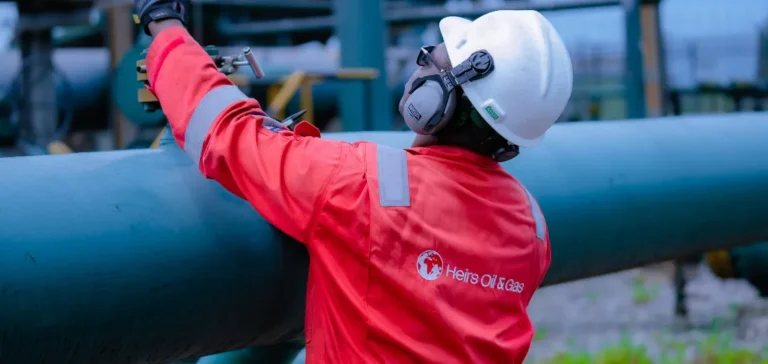Nigerian company Heirs Energies has transformed the previously underutilised OML 17 oil block into a highly productive infrastructure, achieving a terminal delivery rate of 95 to 100%. This improvement is part of a long-term investment plan to reach a daily production of 100,000 barrels.
At the time of acquisition in 2021, the block produced 27,000 barrels per day. Within one hundred days, Heirs Energies raised output to 50,000 barrels per day, according to Chief Executive Officer Osa Igiehon. The increase was made possible by reactivating 30 dormant wells. “We nearly doubled the number of wells in production through a focused programme supported by experienced staff and strong community relations,” he said.
Restart of a well dormant for 37 years
Among the company’s major operations was the restart of a well in the Niger Delta that had been inactive for 37 years. The well had no technical faults, but production had been halted due to social and security challenges. The intervention illustrates Heirs Energies’ investment strategy of leveraging local expertise to revitalise existing assets.
Heirs Energies also positions itself as the leading domestic gas supplier in south-eastern Nigeria, with 85 to 90% of its gas output dedicated to local consumption. It supplies gas to power plants such as Trans Afam, FIPL, G-PAL and Geometric, as well as industrial hubs in the Port Harcourt area. No gas is exported, with all production channelled into the Nigerian economy.
Strengthening gas capacity and local production
Executive Director and Chief Financial Officer Sam Nwanze stated that the company commissioned the Agbada Non-Associated Gas Plant, increasing gas output to over 100 million standard cubic feet per day (MMscfd). This development is part of a targeted investment strategy for domestic infrastructure.
He added that Heirs Energies is fully owned and managed by Nigerians, with over 1.5 million lost-time injury-free man-hours (LTI), and operates under international governance and safety standards. This local management approach is presented as a lever for sustained performance.
Regional expansion and structured social investment
The company plans to extend its model to other African markets, including Namibia, Senegal and Angola, leveraging its “Brownfield Excellence” strategy, which focuses on redeveloping underperforming assets through targeted investment and local engineering.
Beyond industrial activities, Heirs Energies has invested in high-impact social projects, including scholarships for more than 280 students, vocational training for 300 youths, and medical outreach programmes reaching over 20,000 people. The company has also financed road infrastructure rehabilitation and supports more than 1,000 small businesses through a partnership with the Tony Elumelu Foundation.






















